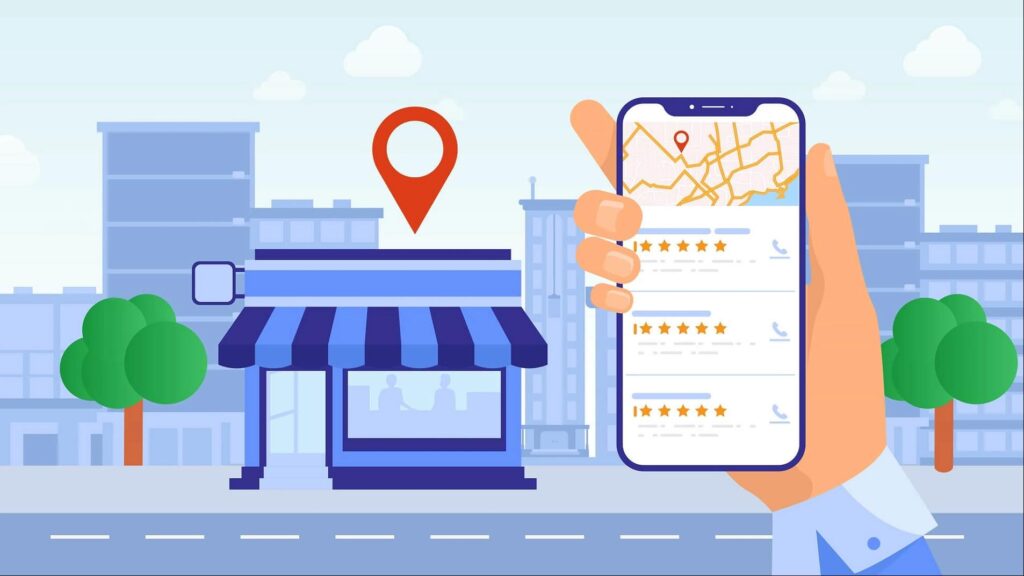Why Your Small Business Needs SEO Today

In today’s digital age, having a website for your small business is no longer enough to attract customers. With millions of websites on the internet, it can be challenging to get noticed. That’s where Search Engine Optimization (SEO) comes in. SEO is the practice of optimizing your website’s content and structure to rank higher in search engine results pages (SERPs) for specific keywords. In this article, we’ll explore why SEO is essential for small businesses and how you can implement it to grow your online presence.
Introduction
In today’s world, consumers rely heavily on search engines like Google to find products and services they need. According to a study by BrightLocal, 97% of people searched online to find a local business in 2020. With such a high percentage of people turning to search engines to find local businesses, it’s crucial for small businesses to have a strong online presence. One of the best ways to do this is through SEO.
What is SEO?
SEO is a practice that aims to improve the visibility of a website in search engine results pages. The higher a website ranks in search results, the more likely it is to attract organic traffic. SEO involves optimizing the website’s content, structure, and other elements to make it more attractive to search engines.
Why Your Small Business Needs SEO
Establishes Credibility
Having a website that appears at the top of search results establishes your small business as a credible and trustworthy source. People are more likely to trust businesses that appear at the top of search results than those that don’t. By investing in SEO, you can improve your website’s ranking and establish credibility with potential customers.
Increases Organic Traffic
Organic traffic is traffic that comes to your website through search engine results rather than through paid advertising. By optimizing your website for search engines, you can attract more organic traffic to your website. This can result in more leads, conversions, and sales for your small business.
Provides a Competitive Edge
SEO is a competitive field, and it’s essential to stay ahead of the competition. By investing in SEO, you can outrank your competitors in search results and attract more potential customers to your website. This can give your small business a competitive edge and help you stand out in a crowded market.
Generates Better Leads
SEO can help you attract high-quality leads that are more likely to convert into customers. By targeting specific keywords and optimizing your website’s content, you can attract people who are actively looking for the products or services you offer. This can result in higher conversion rates and better returns on your marketing investment.
Improves User Experience
SEO involves optimizing your website’s structure, content, and other elements to improve the user experience. This can result in a better user experience for visitors to your website, which can increase engagement, reduce bounce rates, and improve conversion rates. By investing in SEO, you can create a better user experience for your customers and improve your website’s overall performance.
Cost-Effective Marketing Strategy
Compared to other marketing strategies, SEO can be a cost-effective way to promote your small business online. While paid advertising can provide quick results, it can also be expensive, and the results are not always sustainable. With SEO, you can attract organic traffic to your website without paying for clicks or impressions. This can result in a steady stream of traffic and leads over time, making it a cost-effective marketing strategy for small businesses.
How to Implement SEO for Your Small Business
Implementing SEO for your small business can be a daunting task, but it doesn’t have to be. Here are some essential steps to get started:
Keyword Research
Keyword research is the process of identifying the keywords and phrases your potential customers are searching for online. By identifying these keywords, you can optimize your website’s content to rank higher in search results. Use tools like Google Keyword Planner, Ahrefs, or SEMrush to identify relevant keywords for your business.
On-Page Optimization
On-page optimization involves optimizing the content on your website to make it more attractive to search engines. This includes optimizing page titles, meta descriptions, header tags, and content for specific keywords.
Off-Page Optimization
Off-page optimization involves optimizing external factors that influence your website’s ranking, such as backlinks and social media signals. Focus on building high-quality backlinks from authoritative websites and create social media profiles to promote your content and attract more followers.
Technical SEO
Technical SEO involves optimizing the technical aspects of your website to make it more attractive to search engines. This includes optimizing website speed, mobile-friendliness, and website architecture.
Local SEO
Local SEO involves optimizing your website to attract local customers. This includes optimizing your Google My Business listing, creating local content, and building local citations.
Common SEO Mistakes to Avoid
Here are some common SEO mistakes that small businesses should avoid:
Keyword Stuffing
Keyword stuffing involves using too many keywords in your content, which can be seen as spammy and can hurt your website’s ranking.
Duplicate Content
Duplicate content can hurt your website’s ranking, so make sure to create unique, high-quality content for your website.
Ignoring Local SEO
If your small business targets local customers, it’s essential to optimize your website for local search results.
Not Measuring Your SEO Performance
To see if your SEO efforts are paying off, it’s essential to measure your website’s traffic, rankings, and conversions regularly.
SEO Tools for Small Businesses
Here are some SEO tools that can help small businesses improve their website’s ranking:
Google Analytics
Google Analytics is a free tool that provides insights into your website’s traffic and performance.
Google Search Console
Google Search Console is a free tool that helps you monitor your website’s performance in search results and identify any issues that need to be addressed.
Ahrefs
Ahrefs is a paid tool that provides insights into your website’s backlinks, keywords, and rankings.
SEMrush
SEMrush is a paid tool that provides insights into your website’s rankings, keywords, and competitors.
Measuring Your SEO Success
To measure the success of your SEO efforts, here are some metrics to track:
Organic Traffic
Track the amount of organic traffic your website receives over time.
Keyword Rankings
Track your website’s ranking for specific keywords over time.
Conversions
Track the number of conversions your website receives, such as form submissions, phone calls, or purchases.
Conclusion
SEO is a crucial element of any small business’s online marketing strategy. By optimizing your website for search engines, you can attract more organic traffic, generate better leads, and establish credibility with potential customers. While SEO can be a complex and ever-evolving field, implementing the essential strategies outlined in this article can help your small business get started on the path to SEO success.
Michael
With over 20 years experience in web design, SEO and website promotion I always give you an expert advice in regard to any issues related to your Site Design, SEO, Internet Marketing, Promotion, Backlinks, Site Content. In order to help you find out what is missing or can be improved and get higher rankings in Google and more traffic.
Recommended Posts

The World of Wearable iGaming Tech
May 17, 2024

Overview of Business Finance in Malta
May 17, 2024

Malta’s iGaming Frontier – Best Brands
May 17, 2024




